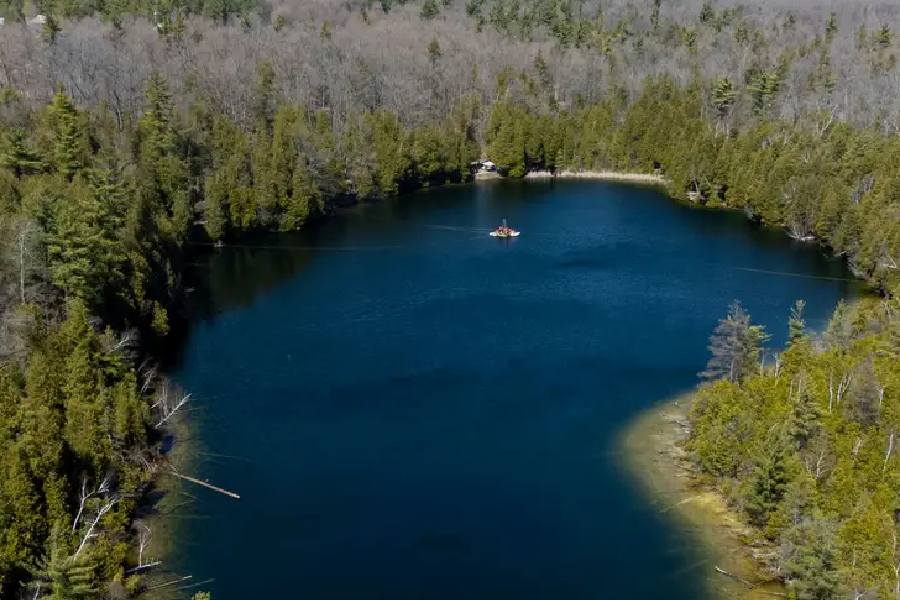Scientists on Tuesday said that sediment at Crawford Lake in Canada provides evidence of the beginning of the Anthropocene age.
The Anthropocene Working Group (AWG) said that layered sediment at the bottom of the lake in the Canadian province of Ontario showed that the world had entered a new epoch defined by human activity's destabilizing influence on the environment.
They chose the lake from a shortlist of 12 potential sites where the evidence of the impacts could be best measured and observed.
The group said that the bottom of the lake contained microplastics, residues from burnt oil and coal and detritus from nuclear bombs.
Scientists said that the sediment showed a "golden spike" illustrating a sudden and irreversible shift in Earth's conditions.
"The data show a clear shift from the mid-20th century, taking Earth's system beyond the normal bounds of the Holocene," working group member Andy Cundy, who is a professor at the University of Southampton, told the Agence France-Presse (AFP) news agency, referring to the epoch that started at the end of the last ice age 11,700 years ago.
"The sediment found at the bottom of the Crawford Lake provides an exquisite record of recent environmental change over the last millennia," said AWG chair Simon Turner, a professor at University College London.
"It is this ability to precisely record and store this information as a geological archive that can be matched to historical global environmental changes."
Anthropocene not yet recognized by international commission
The members of the working group plan to present the findings to the International Commission on Stratigraphy in order to get the Anthropocene epoch formally recognized.
There has been disagreement within the scientific community on when this period began, or whether it has begun, and the evidence required to demonstrate it.
"At present, we've had 70 years of the Anthropocene," AWG chair Colin Waters said. "That has been long enough, because of the rapidity of the change and the preciseness of it, to recognize that we've moved into this new Earth state, and that it should be defined by a new geological epoch."
"Clearly the biology of the planet has changed abruptly," Waters said. "We cannot go back to a Holocene state now."
Holocene derives from the ancient Greek words for "whole" and "new," with the name chosen to denote the vastly changed characteristics on Earth as the last Ice Age ended. Anthropocene meanwhile derives from the Greek for "human" and "new."










